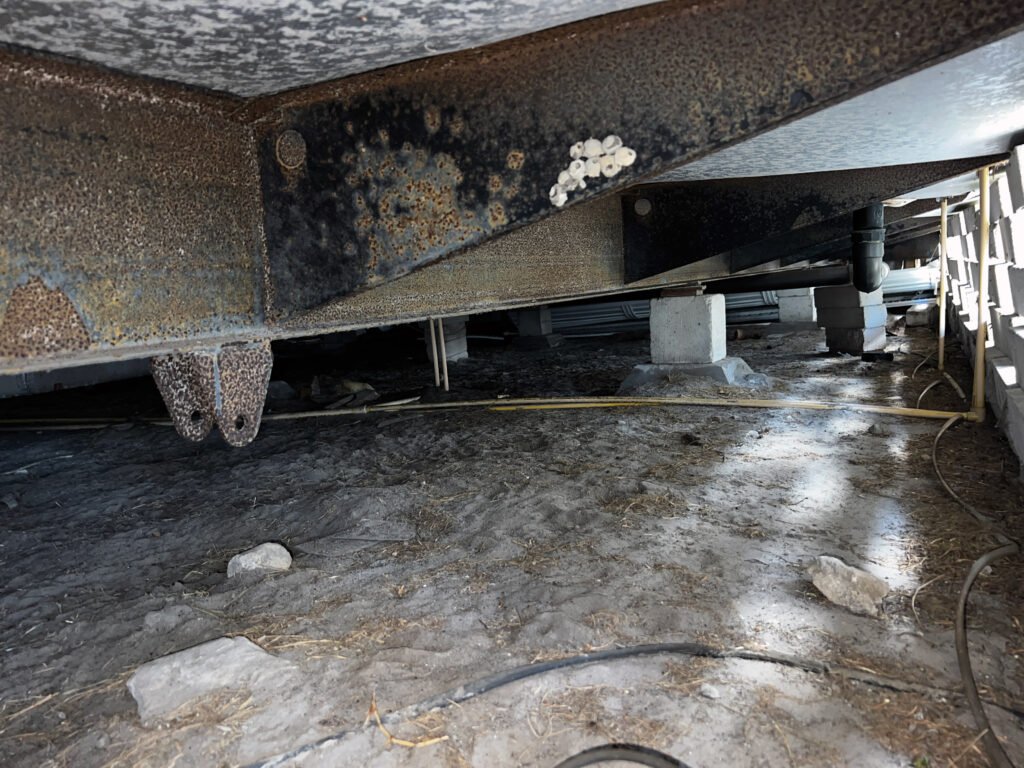Mobile homes are a popular and practical housing option in Florida, offering affordability, flexibility, and quick setup. However, Florida’s unique weather patterns, including hurricanes and tropical storms, pose significant risks to these homes. One of the most critical safety measures for protecting mobile homes and their occupants during severe weather is the use of mobile home tie downs.
In this blog post, we’ll explore what mobile home tie downs are, why they are essential for Florida mobile homes, and how they can help you stay safe and compliant with state regulations.
What Are Mobile Home Tie Downs?
Mobile home tie downs are anchoring systems designed to secure mobile or manufactured homes to the ground. These systems consist of metal straps or cables attached to the home’s frame and anchored into the ground with steel rods or concrete piers. The goal of these tie downs is to minimize the risk of a home being shifted, lifted, or overturned during high winds or extreme weather events.
Why Are Mobile Home Tie Downs Important in Florida?
Florida’s geographical location and climate make it especially vulnerable to hurricanes, tropical storms, and high wind events. These conditions can create devastating forces that are capable of lifting or shifting improperly secured mobile homes. Here’s why mobile home tie downs are a necessity:
- Protection During Hurricanes
Florida faces an annual hurricane season, with strong winds and flying debris posing threats to mobile homes. Properly installed mobile home tie downs help resist wind uplift forces and keep the structure grounded. - Compliance with Florida Regulations
Florida law mandates that all mobile homes meet specific safety standards, including the installation of tie downs. Non-compliance can result in penalties and increased risks during inspections or storm events. - Minimizing Property Damage
Without tie downs, a mobile home is at a higher risk of being displaced or severely damaged. This can lead to costly repairs or even the total loss of the home. Tie downs provide a cost-effective solution to minimize these risks. - Ensuring Occupant Safety
Secured homes are safer for occupants during storms. Tie downs reduce the risk of the home collapsing, providing a more secure environment for you and your family.
How to Ensure Your Mobile Home Tie Downs Are Effective
For Florida homeowners, ensuring that tie downs are properly installed and maintained is crucial. Here are some tips to keep in mind:
- Hire a Professional Installer
Proper installation is key. Hiring a licensed contractor who specializes in mobile home tie downs ensures the system meets Florida’s safety codes and can withstand high winds. - Perform Regular Inspections
Over time, tie downs can become corroded or loosen due to environmental factors. Regular inspections help identify and fix issues before they become significant problems. - Upgrade Older Systems
If your mobile home was installed decades ago, the tie downs may not meet current standards. Upgrading to modern systems can provide enhanced protection and peace of mind. - Use the Right Anchors
The type of anchor used should be suitable for the soil conditions in your area. Professionals can recommend the best options based on your location.
Conclusion: Invest in Mobile Home Tie Downs for Safety and Peace of Mind
Mobile home tie downs are not just a legal requirement in Florida—they are a critical component of protecting your home and loved ones. By securing your mobile home with a reliable tie-down system, you can reduce the risks posed by hurricanes and other severe weather events. Additionally, staying compliant with state regulations ensures you avoid fines and increases the resale value of your property.
Don’t wait for the next storm to highlight the importance of mobile home tie downs. Contact Vital Check Inspections today to inspect the tie-down system for your mobile home. Your safety and peace of mind are worth the investment.
By taking action now, you can ensure your mobile home remains safe and secure, no matter what Florida’s unpredictable weather has in store.


